- TCS Technical Interview Questions & Answers
- TCS Managerial Interview Questions & Answers
- TCS HR Interview Questions & Answers
- Overview of Cognizant Recruitment Process
- Cognizant Interview Questions: Technical
- Cognizant Interview Questions: HR Round
- Overview of Wipro Technologies Recruitment Rounds
- Wipro Interview Questions
- Technical Round
- HR Round
- Online Assessment Sample Questions
- Frequently Asked Questions
- Overview of Google Recruitment Process
- Google Interview Questions: Technical
- Google Interview Questions: HR round
- Interview Preparation Tips
- About Google
- Deloitte Technical Interview Questions
- Deloitte HR Interview Questions
- Deloitte Recruitment Process
- Technical Interview Questions and Answers
- Level 1 difficulty
- Level 2 difficulty
- Level 3 difficulty
- Behavioral Questions
- Eligibility Criteria for Mindtree Recruitment
- Mindtree Recruitment Process: Rounds Overview
- Skills required to crack Mindtree interview rounds
- Mindtree Recruitment Rounds: Sample Questions
- About Mindtree
- Preparing for Microsoft interview questions
- Microsoft technical interview questions
- Microsoft behavioural interview questions
- Aptitude Interview Questions
- Technical Interview Questions
- Easy
- Intermediate
- Hard
- HR Interview Questions
- Eligibility criteria
- Recruitment rounds & assessments
- Tech Mahindra interview questions - Technical round
- Tech Mahindra interview questions - HR round
- Hiring process at Mphasis
- Mphasis technical interview questions
- Mphasis HR interview questions
- About Mphasis
- Technical interview questions
- HR interview questions
- Recruitment process
- About Virtusa
- Goldman Sachs Interview Process
- Technical Questions for Goldman Sachs Interview
- Sample HR Question for Goldman Sachs Interview
- About Goldman Sachs
- Nagarro Recruitment Process
- Nagarro HR Interview Questions
- Nagarro Aptitude Test Questions
- Nagarro Technical Test Questions
- About Nagarro
- PwC Recruitment Process
- PwC Technical Interview Questions: Freshers and Experienced
- PwC Interview Questions for HR Rounds
- PwC Interview Preparation
- Frequently Asked Questions
- EY Technical Interview Questions (2023)
- EY Interview Questions for HR Round
- About EY
- Morgan Stanley Recruitment Process
- HR Questions for Morgan Stanley Interview
- HR Questions for Morgan Stanley Interview
- About Morgan Stanley
- Recruitment Process at Flipkart
- Technical Flipkart Interview Questions
- Code-Based Flipkart Interview Questions
- Sample Flipkart Interview Questions- HR Round
- Conclusion
- FAQs
- Recruitment Process at Paytm
- Technical Interview Questions for Paytm Interview
- HR Sample Questions for Paytm Interview
- About Paytm
- Most Probable Accenture Interview Questions
- Accenture Technical Interview Questions
- Accenture HR Interview Questions
- Amazon Recruitment Process
- Amazon Interview Rounds
- Common Amazon Interview Questions
- Amazon Interview Questions: Behavioral-based Questions
- Amazon Interview Questions: Leadership Principles
- Company-specific Amazon Interview Questions
- 43 Top Technical/ Coding Amazon Interview Questions
- Juspay Recruitment: Stages and Timeline
- Juspay Interview Questions and Answers
- How to prepare for Juspay interview questions
- Prepare for the Juspay Interview: Stages and Timeline
- Frequently Asked Questions
- Adobe Interview Questions - Technical
- Adobe Interview Questions - HR
- Recruitment Process at Adobe
- About Adobe
- Cisco technical interview questions
- Sample HR interview questions
- The recruitment process at Cisco
- About Cisco
- JP Morgan interview questions (Technical round)
- JP Morgan interview questions HR round)
- Recruitment process at JP Morgan
- About JP Morgan
- Wipro Elite NTH: Selection Process
- Wipro Elite NTH Technical Interview Questions
- Wipro Elite NTH Interview Round- HR Questions
- BYJU's BDA Interview Questions
- BYJU's SDE Interview Questions
- BYJU's HR Round Interview Questions
- A Quick Overview of the KPMG Recruitment Process
- Technical Questions for KPMG Interview
- HR Questions for KPMG Interview
- About KPMG
- DXC Technology Interview Process
- DCX Technical Interview Questions
- Sample HR Questions for DXC Technology
- About DXC Technology
- Recruitment Process at PayPal
- Technical Questions for PayPal Interview
- HR Sample Questions for PayPal Interview
- About PayPal
- Capgemini Recruitment Rounds
- Capgemini Interview Questions: Technical round
- Capgemini Interview Questions: HR round
- Preparation tips
- FAQs
- Technical interview questions for Siemens
- Sample HR questions for Siemens
- The recruitment process at Siemens
- About Siemens
- HCL Technical Interview Questions
- HR Interview Questions
- HCL Technologies Recruitment Process
- List of EPAM Interview Questions for Technical Interviews
- About EPAM
- Atlassian Interview Process
- Top Skills for Different Roles at Atlassian
- Atlassian Interview Questions: Technical Knowledge
- Atlassian Interview Questions: Behavioral Skills
- Atlassian Interview Questions: Tips for Effective Preparation
- Walmart Recruitment Process
- Walmart Interview Questions and Sample Answers (HR Round)
- Walmart Interview Questions and Sample Answers (Technical Round)
- Tips for Interviewing at Walmart and Interview Preparation Tips
- Frequently Asked Questions
- Uber Interview Questions For Engineering Profiles: Coding
- Technical Uber Interview Questions: Theoretical
- Uber Interview Question: HR Round
- Uber Recruitment Procedure
- About Uber Technologies Ltd.
- Intel Technical Interview Questions
- Computer Architecture Intel Interview Questions
- Intel DFT Interview Questions
- Intel Interview Questions for Verification Engineer Role
- Recruitment Process Overview
- Important Accenture HR Interview Questions
- Points to remember
- What is Selenium?
- What are the components of the Selenium suite?
- Why is it important to use Selenium?
- What's the major difference between Selenium 3.0 & Selenium 2.0?
- What is Automation testing and what are its benefits?
- What are the benefits of Selenium as an Automation Tool?
- What are the drawbacks to using Selenium for testing?
- Why should Selenium not be used as a web application or system testing tool?
- Is it possible to use selenium to launch web browsers?
- What does Selenese mean?
- What does it mean to be a locator?
- Identify the main difference between "assert", and "verify" commands within Selenium
- What does an exception test in Selenium mean?
- What does XPath mean in Selenium? Describe XPath Absolute & XPath Relation
- What is the difference in Xpath between "//"? and "/"?
- What is the difference between "type" and the "typeAndWait" commands within Selenium?
- Distinguish between findElement() & findElements() in context of Selenium
- How long will Selenium wait before a website is loaded fully?
- What is the difference between the driver.close() and driver.quit() commands in Selenium?
- Describe the different navigation commands that Selenium supports
- What is Selenium's approach to the same-origin policy?
- Explain the difference between findElement() in Selenium and findElements()
- Explain the pause function in SeleniumIDE
- Explain the differences between different frameworks and how they are connected to Selenium's Robot Framework
- What are your thoughts on the Page Object Model within the context of Selenium
- What are your thoughts on Jenkins?
- What are the parameters that selenium commands come with a minimum?
- How can you tell the differences in the Absolute pathway as well as Relative Path?
- What's the distinction in Assert or Verify declarations within Selenium?
- What are the points of verification that are in Selenium?
- Define Implicit wait, Explicit wait, and Fluent
- Can Selenium manage windows-based pop-ups?
- What's the definition of an Object Repository?
- What is the main difference between obtainwindowhandle() as well as the getwindowhandles ()?
- What are the various types of Annotations that are used in Selenium?
- What is the main difference in the setsSpeed() or sleep() methods?
- What is the way to retrieve the alert message?
- How do you determine the exact location of an element on the web?
- Why do we use Selenium RC?
- What are the benefits or advantages of Selenium RC?
- Do you have a list of the technical limitations when making use of Selenium RC? Selenium RC?
- What's the reason to utilize the TestNG together with Selenium?
- What Language do you prefer to use to build test case sets in Selenium?
- What are Start and Breakpoints?
- What is the purpose of this capability relevant in relation to Selenium?
- When do you use AutoIT?
- Do you have a reason why you require Session management in Selenium?
- Are you able to automatize CAPTCHA?
- How can we launch various browsers on Selenium?
- Why should you select Selenium rather than QTP (Quick Test Professional)?
- Airbus Interview Questions and Answers: HR/ Behavioral
- Industry/ Company-Specific Airbus Interview Questions
- Airbus Interview Questions and Answers: Aptitude
- Airbus Software Engineer Interview Questions and Answers: Technical
- Importance of Spring Framework
- Spring Interview Questions (Basic)
- Advanced Spring Interview Questions
- C++ Interview Questions and Answers: The Basics
- C++ Interview Questions: Intermediate
- C++ Interview Questions And Answers With Code Examples
- C++ Interview Questions and Answers: Advanced
- Test Your Skills: Quiz Time
- MBA Interview Questions: B.Com Economics
- B.Com Marketing
- B.Com Finance
- B.Com Accounting and Finance
- Business Studies
- Chartered Accountant
- Q1. Please tell us something about yourself/ Introduce yourself to us.
- Q2. Describe yourself in one word.
- Q3. Tell us about your strengths and weaknesses.
- Q4. Why did you apply for this job/ What attracted you to this role?
- Q5. What are your hobbies?
- Q6. Where do you see yourself in five years OR What are your long-term goals?
- Q7. Why do you want to work with this company?
- Q8. Tell us what you know about our organization
- Q9. Do you have any idea about our biggest competitors?
- Q10. What motivates you to do a good job?
- Q11. What is an ideal job for you?
- Q12. What is the difference between a group and a team?
- Q13. Are you a team player/ Do you like to work in teams?
- Q14. Are you good at handling pressure/ deadlines?
- Q15. When can you start?
- Q16. How flexible are you regarding overtime?
- Q17. Are you willing to relocate for work?
- Q18. Why do you think you are the right candidate for this job?
- Q19. How can you be an asset to the organization?
- Q20. What is your salary expectation?
- Q21. How long do you plan to remain with this company?
- Q22. What is your objective in life?
- Q23. Would you like to pursue your Master's degree anytime soon?
- Q24. How have you planned to achieve your career goal?
- Q25. Can you tell us about your biggest achievement in life?
- Q26. What was the most challenging decision you ever made?
- Q27. What kind of work environment do you prefer to work in?
- Q28. What is the difference between a smart worker and a hard worker?
- Q29. What will you do if you don't get hired?
- Q30. Tell us three things that are most important for you in a job.
- Q31. Who is your role model and what have you learned from him/her?
- Q32. In case of a disagreement, how do you handle the situation?
- Q33. What is the difference between confidence and overconfidence?
- Q34. If you have more than enough money in hand right now, would you still want to work?
- Q35. Do you have any questions for us?
- Interview Tips for Freshers
- Tell me about yourself
- What are your greatest strengths?
- What are your greatest weaknesses?
- Tell me about something you did that you now feel a little ashamed of
- Why are you leaving (or did you leave) this position??
- 15+ resources for preparing most-asked interview questions
- CoCubes Interview Process Overview
- Common CoCubes Interview Questions
- Key Areas to Focus on for CoCubes Interview Preparation
- Conclusion
- Frequently Asked Questions (FAQs)
- Data Analyst Interview Questions With Answers
- About Data Analyst
64 Toughest Interview Questions For Job (With 17+ Prep Resources)
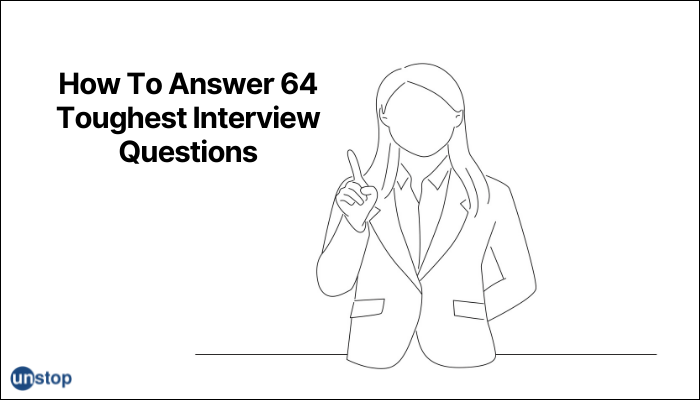
What is your greatest strength?
What is your greatest weakness?
What would you like me to know about you that I don't know?
Why do you want this job?
How do you respond when someone criticizes your work?
Do these job interview questions make your blood run cold? Well, job interviews are like an undulating road, full of bends and twists.
Some of the best interview questions are open-ended, like "Where do you see yourself in five years?" or "What's your biggest accomplishment?" These types of questions give the interviewer a chance to understand what the candidate really cares about and how they would fit into their company culture.
And in these cases it's not just about what you say, it's also about how you say it. This can be a difficult task for some people, but it doesn’t have to be.
Aman Barnwal, a Software Engineer and Ex-PayPal from NIT Trichy'20, shares a comprehensive list of tricky job interview questions. He has inspired and guided over 63K LinkedIn community members so far, and is on his way to helping millions more land their dream job!
Job Interview Question 1: Tell me about yourself.
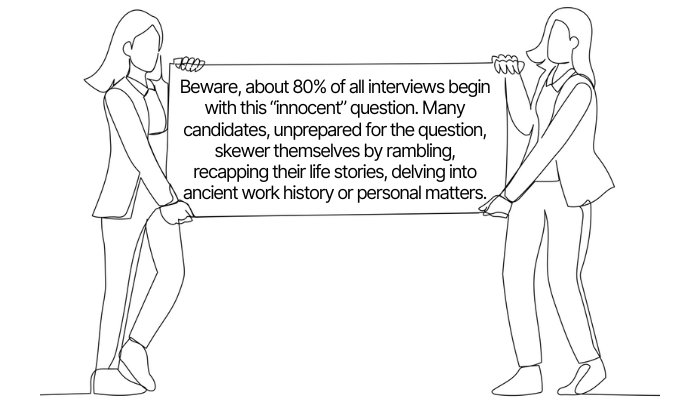
BEST ANSWER: Start with the present and tell why you are well qualified for the position. Remember that the key to all successful interviewing is to match your qualifications to what the interviewer is looking for. In other words, you must self what the buyer is buying. This is the single most important strategy in job hunting.
So, before you answer this or any question it's imperative that you try to uncover your interviewer's greatest need, want problem or goal.
To do so, make you take these two steps:
- Do all the homework you can before the interview to uncover this person's wants and needs (not the generalized needs of the industry or company)
- As early as you can in the interview, ask for a more complete description of what the position entails.
You might say:
“Il have a number of accomplishments I'd like to tell you about, but | want to make the best use of our time together and talk directly to your needs. To help me do, that, could you tell me more about the most important priorities of this position? All | know is what | (heard from the recruiter, read in the classified ad, etc.)”
Then, ALWAYS follow up with a second and possibly, a third question, to draw out his needs even more. Surprisingly, it's usually this second or third question that unearths what the interviewer is most looking for.
You might ask simply, "And in addition to that?...” or, "Is there anything else you see as essential to success in this position?
This process will not feel easy or natural at first, because it is easier simply to answer questions, but only if you uncover the employer's wants and needs will your answers make the most sense. Practice asking these key questions before giving your answers, the process will feel more natural and you will be light years ahead of the other job candidates you're competing with.
After uncovering what the employer is looking for, describe why the needs of this job bear striking parallels to tasks you've succeeded at before. Be sure to illustrate with specific examples of your responsibilities and especially your achievements, all of which are geared to present yourself as a perfect match for the needs he has just described.
Job Interview Question 2: What are your greatest strengths?
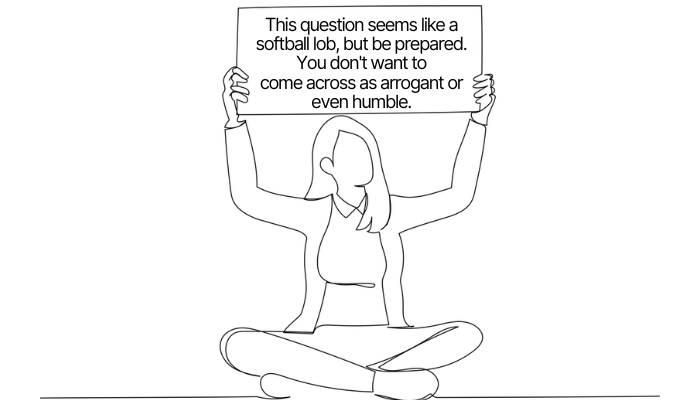
BEST ANSWER: You know that your key strategy is to first uncover your interviewer's greatest wants and needs before you answer questions. And from Question 1, you know how to do this.
Prior to any interview, you should have a list mentally prepared of your greatest strengths. You should also have, a specific example or two, which illustrates each strength, an example chosen from your most recent and most impressive achievements.
You should have this list of your greatest strengths and corresponding examples from your achievements so well committed to memory that you can recite them cold after being shaken awake at 2:30 AM.
Then, once you uncover your interviewer's greatest wants and needs, you can choose those achievements from your list that best match up.
As a general guideline, the 10 most desirable traits that all employers love to see in their employees are:
-
A proven track record as an achiever...especially if your achievements match up with the employer's greatest wants and needs
-
Intelligence... management "savvy"
-
Honesty...integrity...a decent human being
-
Good fit with corporate culture...someone to feel comfortable with...a team player who meshes well with interviewer's team.
-
Likeability...positive attitude...sense of humor
-
Good communication skills
-
Dedication...willingness to walk the extra mile to achieve excellence
-
Definiteness of purpose...clear goals
-
Enthusiasm...high level of motivation
-
Confident...healthy...a leader
Job Interview Question 3: What are your greatest weaknesses?
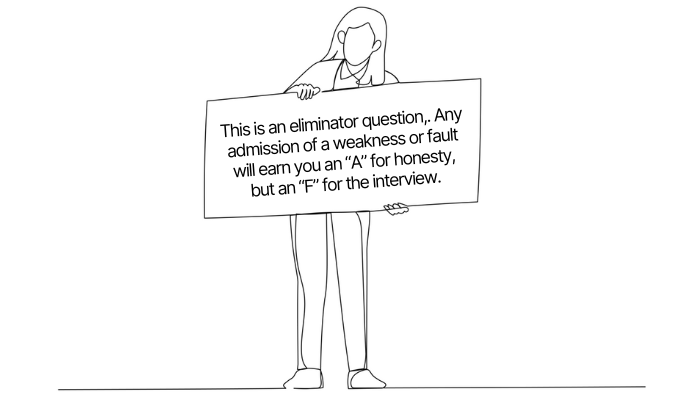
PASSABLE ANSWER: Disguise a strength as a weakness.
Example: “I sometimes push my people too hard. I like to work with a sense of urgency and everyone is not always on the same wavelength.”
Drawback: This strategy is better than admitting a flaw, but it's so widely used, it is transparent to any experienced interviewer.
BEST ANSWER: (and another reason it's so important to get a thorough description of your interviewer's needs before you answer questions): Assure the interviewer that you can think of nothing that would stand in the way of your performing in this position with excellence. Then, quickly review your strongest qualifications.
Example:
“Nobody's perfect, but based on what you've told me about this position, I believe I'd make an outstanding match. I know that when I hire people, I look for two things most of all. Do they have the qualifications to do the job well, and the motivation to do it well? Everything in my background shows I have both the qualifications and a strong desire to achieve excellence in whatever I take on. So I can say in all honesty that I see nothing that would cause you even a small concern about my ability or my strong desire to perform this job with excellence.”
Alternate strategy (if you don't yet know enough about the position to talk about such a perfect fit):
Instead of confessing a weakness, describe what you like most and like least, making sure that what you like most matches up with the most important qualification for success in the position, and what you like least is not essential.
Example: Let's say you're applying for a teaching position.
“If given a choice, I like to spend as much time as possible in front of my prospects selling, as opposed to shuffling paperwork back at the office. Of course, long ago I learned the importance of filing paperwork properly, and I do it conscientiously. But what I really love to do is sell (if your interviewer were a sales manager, this should be music to his ears.)
Job Interview Question 4: Tell me about something you did — or failed to do — that you now feel a little ashamed of.
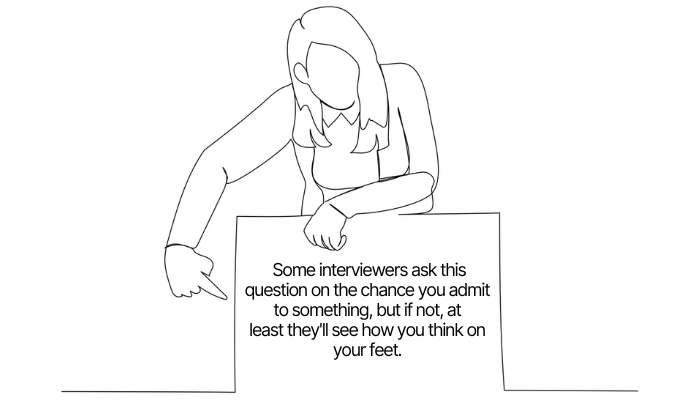
Some unprepared candidates, flustered by this question, unburden themselves of guilt from their personal life or career, perhaps expressing regrets regarding a parent, spouse, child, etc. All such answers can be disastrous.
BEST ANSWER: As with faults and weaknesses, never confess a regret. But don’t seem as if you're stonewalling either.
Best strategy: Say you harbor no regrets, then add a principle or habit you practice regularly for healthy human relations.
Example: Pause for reflection, as if the question never occurred to you, Then say,
“You know, I really can’t think of anything.” (Pause again, then add) I would add that as a general management principle, I've found that the best way to avoid regrets is to avoid causing them in the first place. I practice one habit that helps me a great deal in this regard. At the end of each day, I mentally review the day’s events and conversations to take a second look at the people and developments I’m involved with and do a doublecheck of what they're likely to be feeling. Sometimes I’ll see things that do need more follow-up, whether a pat on the back, or maybe a five minute chat in someone’s office to make sure we’re clear on things...whatever.”
“I also like to make each person feel like a member of an elite team, like the Boston Celtics or LA Lakers in their prime. I’ve found that if you let each team member know you expect excellence in their performance...if you work hard to set an example yourself...and if you let people know you appreciate and respect their feelings, you wind up with a highly motivated group, a team that’s having fun at work because they're striving for excellence rather than brooding over slights or regrets.”
Job Interview Question 5: Why are you leaving (or did you leave) this position?
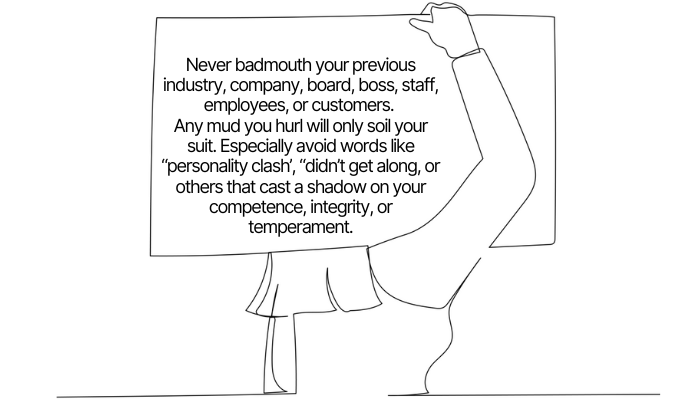
BEST ANSWER:
(If you have a job presently)
If you're not yet 100% committed to leaving your present post, don’t be afraid to say so.
Since you have a job, you are in a stronger position than someone who does not. But don't be coy either. State honestly what you'd be hoping to find in a new spot. Of course, as stated often before, your answer will be all the stronger if you have already uncovered what this position is all about and you match your desires to it.
(If you do not presently have a job)
Never lie about having been fired. It’s unethical ~ and too easily checked. But do try to deflect the reason from you personally. If your firing was the result of a takeover, merger, division-wide layoff, etc., so much the better.
But you should also do something totally unnatural that will demonstrate consummate professionalism. Even if it hurts, describe your own firing ~ candidly, succinctly, and without a trace of bitterness — from the company’s point of view, indicating that you could understand why it happened and you might have made the same decision yourself.
Your stature will rise immensely and, most important of all, you will show you are healed from the wounds inflicted by the firing. You will enhance your image as first-class management material and stand head and shoulders above the legions of firing victims who, at the slightest provocation, zip open their shirts to expose their battle scars and decry the unfairness of it all.
For all prior positions:
Make sure you've prepared a brief reason for leaving. Best reasons - more money, opportunity, responsibility, or growth.
Everyone is nervous on interviews. If you simply allow yourself to feel nervous, you'll do much better. Remember also that it's difficult for the interviewer as well. In general, be upbeat and positive. Never be negative. Rehearse your answers and time them. Never talk for more than 2 minutes straight.
I've compiled a list of 60+ toughest and most-asked interview questions for job, as well as advice on how to answer each one.
So practice your answers and think about what impression you want to leave with the interviewer with these questions.
15+ resources for preparing most-asked interview questions for that dream job!
Here are some preparation resources for candidates who are just getting their feet wet in the world of job interviews.
-
20 Popular Behavioral Interview Questions With Answers 2022
-
The ‘Flipside’ Of A Job Interview: When HRs Need To Know The RIGHT Answer!
-
Top 35 Interview Questions For Freshers With Answers
-
Placement interview questions, the end all and be all for an MBA!
-
Most Common Programming Interview Questions With Answers 2022
-
30 Business Analyst Interview Questions 2022 (With Answer Tips!)
-
90+ MBA Interview Questions For Commerce Graduates Asked By Top B-Schools
-
Most Asked 45+ Accounting Interview Questions With Answers
-
100+ Best Marketing Interview Questions And Answers
-
How to frame answers for frequently asked MBA interview questions?
-
Know The Most Asked IAS Interview Questions To Get The Extra Edge In UPSC 2022
-
Prepare For A Banking Job With These Frequently Asked Banking Interview Questions And Answers
-
90+ MBA Admission Interview Questions Of Top B-Schools For Engineering Grads
-
Basic Excel Interview Questions with Answers 2022
-
The Most-Asked 100+ Finance Interview Questions With Answers [Bookmark Them!]
-
5 Most Weird Questions Asked During A Job Interview
-
Top 6 Weird Questions That Were Asked in an IIM Interview
Here is to adding a shining new feather to your repertoire!
Good Luck!
A Software Engineer and Ex-PayPal from NIT Trichy'20 batch, he has inspired and guided over 63K LinkedIn community to date, and is on his way to helping millions more land their dream job!
Login to continue reading
And access exclusive content, personalized recommendations, and career-boosting opportunities.
Subscribe
to our newsletter










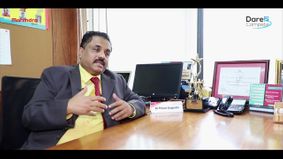

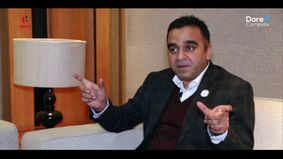
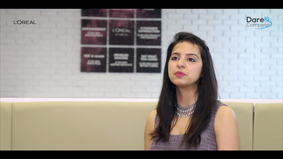
Comments
Add comment